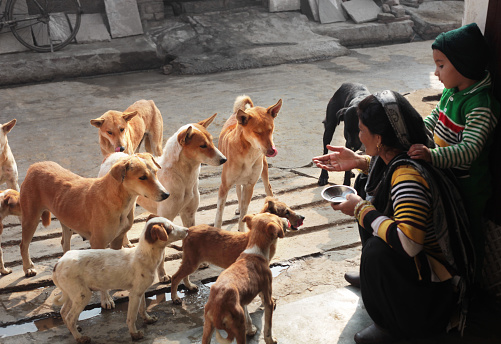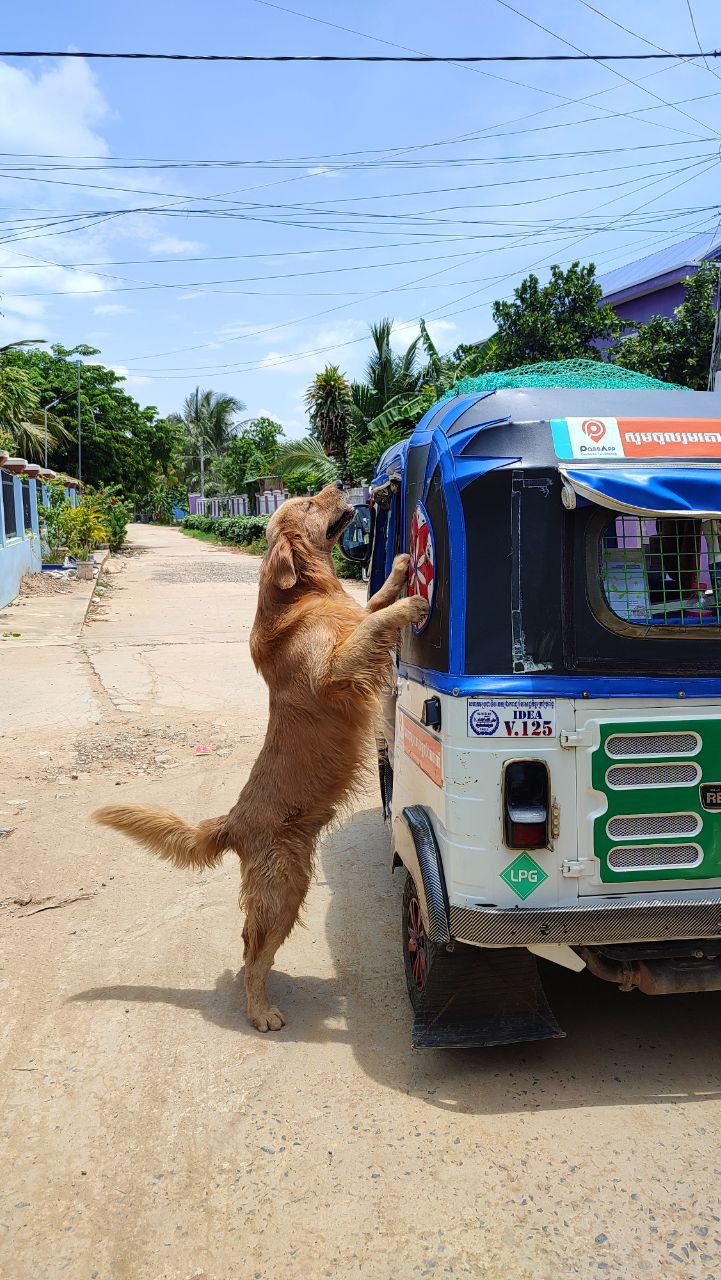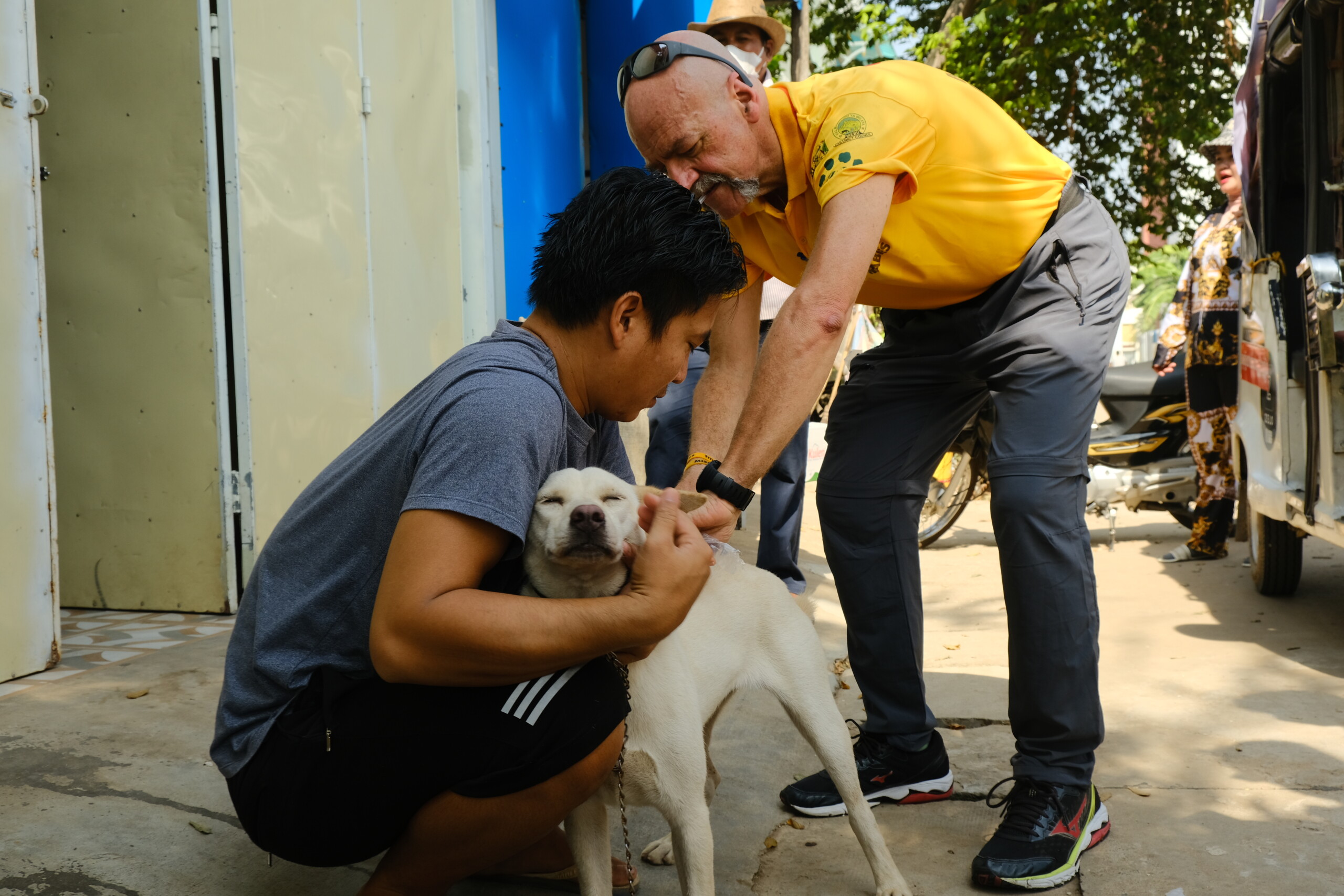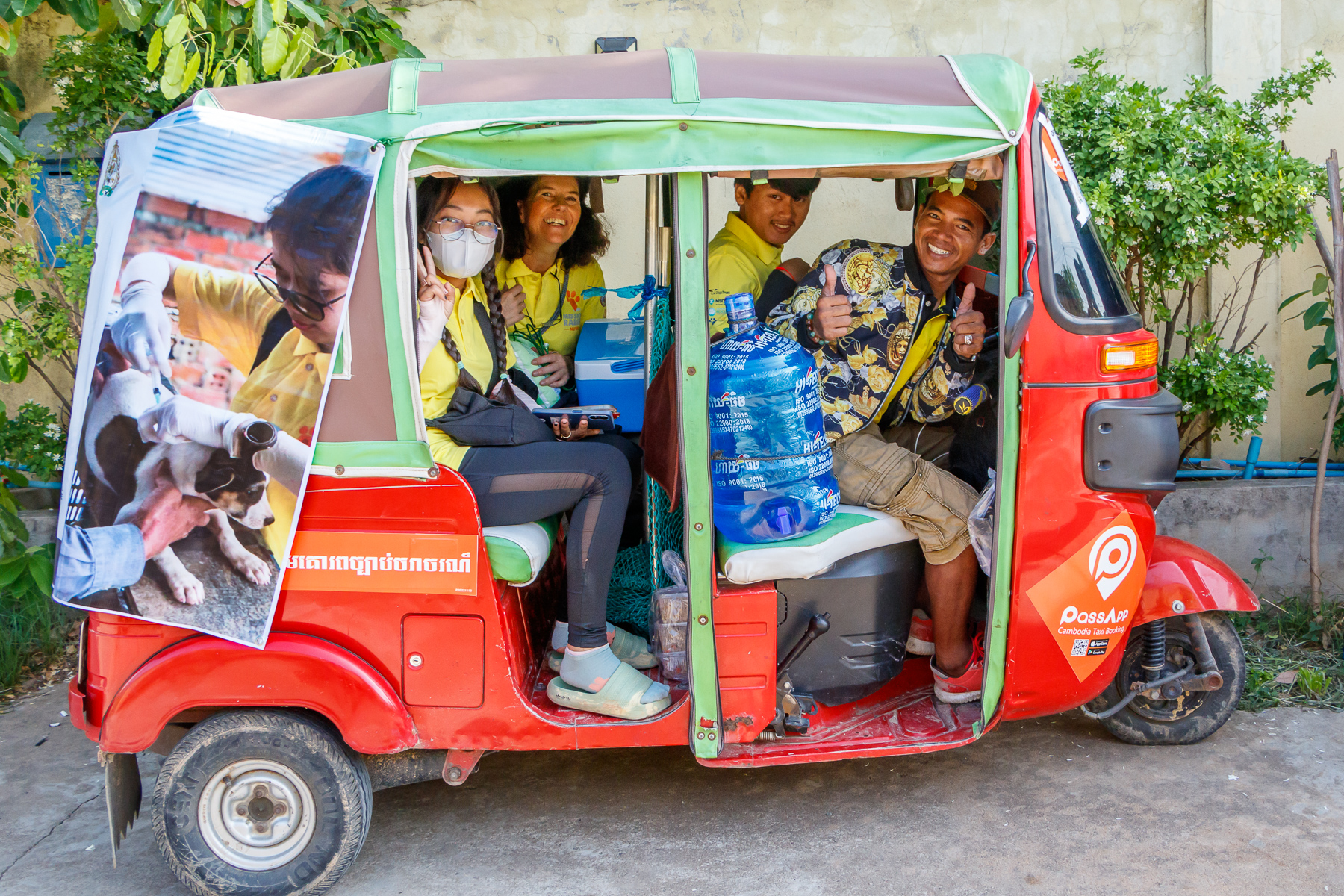
Rabies is endemic in Cambodia and poses a serious threat to human health. To eliminate rabies, a mass vaccination campaign for dogs, the source of most human cases, was undertaken in Phnom Penh, the capital city.
Cambodia has a large canine population, estimated at around 5 million. Despite the lack of accurate data since it is not compulsory to register dogs, surveys find that most animals are owned. Many Cambodians choose to own a dog primarily for safety reasons. In addition, in tandem with the country’s swift economic development, the urban middle class embraces pet ownership for companionship, thereby contributing to the rise of the population. It is estimated there are around 2.2 dogs per household.
The dog population has increased while Cambodia is still a rabies-endemic country. Over the last three decades, 87 human deaths were recorded. Rabies has been identified in dogs, cats, cows, and monkeys. Yet, dogs are the principal cause of human bite incidents with around 600,000 cases per year. Dogs being largely owned, education and raising awareness are considered as key solutions; however, vaccination remains the most cost-efficient method of preventing human deaths from dog-mediated rabies.
Under the authority of the General Directorate of Animal Health and Production (GDAHP), the Veterinary Services of Cambodia, efforts are undertaken to achieve herd immunity in Phnom Penh. GDAHP is working with various stakeholders (civil society, international organisations, and governmental agencies) to increase the vaccination rate. While the World Organisation for Animal Health (WOAH) provides technical support to establish a strategy, NGOs carry on vaccination campaigns by operating at the field level. Within this context, a free rabies vaccination campaign to inoculate the dog population living in Phnom Penh was carried out for 10 days by Mission Rabies (22 May to 2 June, 2023).
The objective was to vaccinate at least 70% of the canine population, the coverage needed to eliminate the disease in dogs by obtaining herd immunity. The campaign focused on the capital city and select areas of Kandal province.
Spanning an expansive area of 679 km², Phnom Penh presented a significant undertaking. To ensure an optimal number of vaccinated dogs, the campaign area was divided into 771 working zones which vaccination teams worked systematically through during the entire duration of the campaign. A vaccination unit is made of four people: two vaccinators and two data collectors. They travelled in the city by Tuk Tuk to operate in narrow streets. A sensitisation volunteer joined them with a megaphone to announce the free vaccinations and asking owners to present their dogs. The vaccination unit went door to door trying to find all of the dogs, record all the canines they saw, and cover the whole working zone. Following the injection, each owner received an education flyer.
Once a team reported their working zone as complete, data were sent to post-vaccination surveyors to estimate the percentage of the vaccinated dog population through the Worldwide Veterinary Service application. Once the figure is above 70%, the area is considered completed until next year. This approach prevents the use of costly or time-consuming methods of individual dog identification.
GDAHP senior staff were involved as team leaders and around 200 Cambodian veterinary students volunteered to support this initiative.
Their work, during the brief 10-day span of the campaign, successfully vaccinated 74,872 dogs including 680 free-roaming dogs (with 99% of vaccinated dogs being owned). This campaign has an immediate impact in Phnom Penh and aspires to create a blueprint for the rest of Cambodia.





